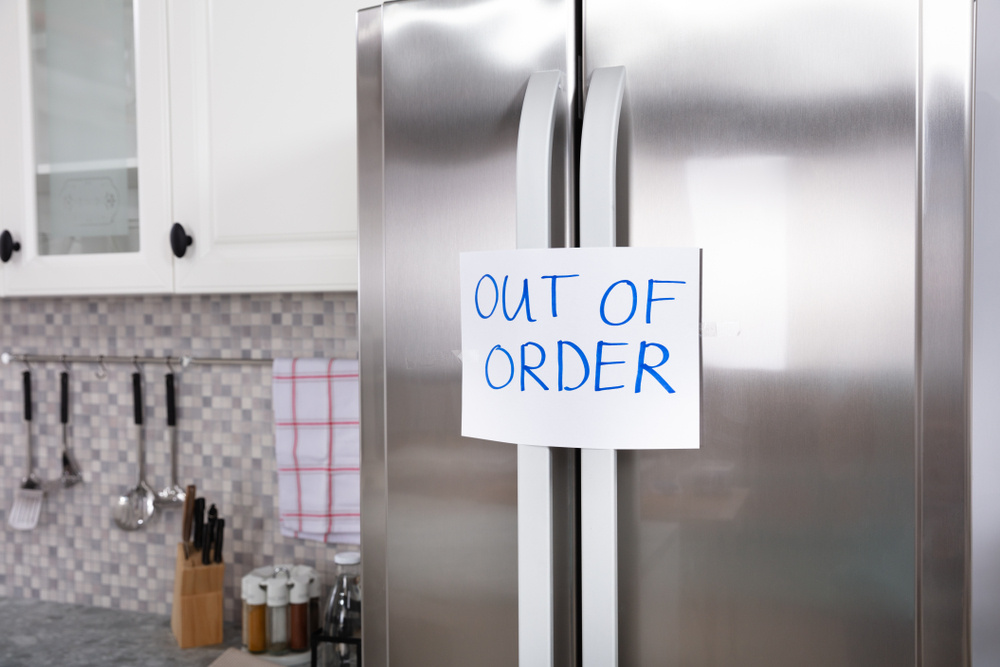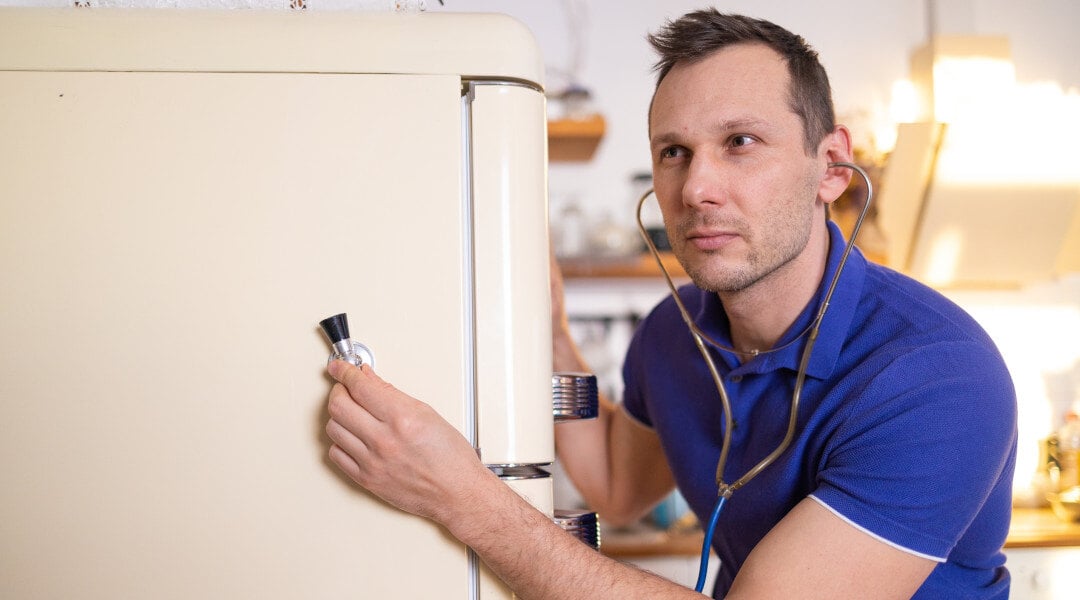Is your washing machine acting up, leaving you perplexed about your next step? You're not alone! Many homeowners face washing machine issues and need a service they can rely on. From understanding costs to pinpointing common problems, this guide aims to help you make informed decisions.
Sign up for our Blog!
Did you know the average washing machine requires repair 2-3 times during its lifespan? Let's explore how to select a repair service tailored to your needs.
Understanding the Costs of Washing Machine Repairs
When your washing machine stops working, the cost of repairs is usually a big concern. How much you pay depends on the type of service you choose. Here’s a quick look:
- Local Repair Shop
- Cost Range: $50-$400
- Hourly Rate: $75-$125/hour
- Additional Fees: Travel fees
- National Chain
- Cost Range: $100-$600
- Hourly Rate: $100-$150/hour
- Additional Fees: Service call fees
- DIY Repair Kits
- Cost Range: $20-$100
- Hourly Rate: N/A
- Additional Fees: N/A
- Manufacturer's Service
- Cost Range: $150-$500
- Hourly Rate: $125-$200/hour
- Additional Fees: Warranty-related fees
- Specialized Technician
- Cost Range: $200-$800
- Hourly Rate: $150-$250/hour
- Additional Fees: Expertise-based fees
Your decision should be based on how much you can spend and how complicated the problem is. Local shops are often more affordable and provide personal service, while national chains can be more expensive but cover a larger area. DIY kits are a good option for simple fixes, but for difficult issues, a specialized technician might be best.
Common Washing Machine Issues Over the Years
As washing machines have evolved, they have incorporated more advanced technology, which has introduced both benefits and new challenges. Here are some common issues and subtopics related to these advancements:
.jpg?width=352&height=255&name=th%20(1).jpg)
- Mechanical Issues:
- Motor Problems: Older machines often suffer from worn-out motors, leading to poor performance or complete failure.
- Drum and Agitator Issues: Problems with the drum or agitator can cause noise, imbalance, or failure to spin.
- Electrical and Electronic Failures:
- Circuit Board Malfunctions: Modern machines use complex circuit boards, which can fail due to power surges or wear, leading to control issues.
- Sensor Failures: Advanced sensors help improve washing efficiency but can become faulty, affecting water levels and temperature control.
- Plumbing and Water Supply Problems:
- Leaking Water Lines: Both old and new machines can experience leaks due to worn-out hoses or faulty connections.
- Drainage Issues: Clogs or pump failures can prevent proper drainage, leading to water retention and potential flooding.
- Software and Connectivity Issues:
- Glitches in Smart Technology: Machines with smart features can experience software glitches, affecting operation or remote connectivity.
- Integration Problems: Compatibility problems with home automation systems can occur, especially with updates or new devices.
Here's a timeline of common problems and cost evolution:
|
Year |
Repair Cost |
Common Issues |
Advancements |
|
2010 |
$30-$100 |
Leaks, door issues |
Basic electronic controls |
|
2015 |
$50-$200 |
Leaks, door issues, motor problems |
Smart sensors introduced |
|
2020 |
$100-$300 |
Leaks, door issues, motor problems, glitches |
AI diagnostics utilized |
|
2023 |
$150-$400 |
Persistent issues with diagnostics |
Smart home system integration |
Smarter machines introduce challenges like software glitches but also offer quicker solutions for repairs.
Key Metrics to Consider When Choosing a Repair Service
Selecting a reliable repair service means evaluating several critical factors that can significantly impact your experience and satisfaction with the repairs.
When choosing a repair service, understanding key metrics can help ensure you make the best choice for your needs. The decision-making process should begin with thorough research and careful consideration of multiple service providers.
Experience and expertise should be at the forefront of your evaluation, as technicians with extensive knowledge are more likely to identify and fix issues efficiently. Look for providers with specific experience in your type of repair needs.
Reputation and customer feedback play crucial roles in evaluating service quality. Check for consistently positive reviews on platforms like Google or Yelp, as high ratings often indicate reliability and quality service.
Each review can provide valuable insights into the company's strengths and potential weaknesses, helping you make an informed decision.
Pricing transparency and warranty offerings are equally important considerations. Be cautious of extremely low quotes that may compromise quality, and ensure the service provides clear, upfront pricing without hidden fees.
A good repair service should offer comprehensive warranties on their work, providing assurance about the quality and durability of repairs. This protection can save you money and stress in the long run.
Response time and availability can make a significant difference, especially for urgent repairs. Consider how quickly the service can address your needs to minimize inconvenience and downtime.
Essential Tips for Choosing a Reliable Repair Service.jpg?width=378&height=249&name=th%20(3).jpg)
When selecting a washing machine repair service, consider these key factors carefully and methodically.
Take time to evaluate each service provider against your specific requirements and circumstances.
Consider these essential elements
- Experience and Expertise: Look for repair services with proven track records
- Licensing and Certifications: Verify proper credentials and manufacturer certifications
- Customer Reviews: Check online ratings and testimonials
Local Shops vs. National Chains
Understanding the differences between service providers can help you make the best choice for your situation.
Local Shops
• Generally lower costs
• More personalized service
• Faster response times
• Possible travel fees
National Chains
• Higher pricing
• Broader service areas
• Standardized procedures
• Included service fees
The choice between local and national providers often depends on your specific needs and preferences.
DIY Repair Options
For those comfortable with hands-on work, DIY solutions might be appropriate for minor repairs.
DIY repair kits ($20-$100) can be a cost-effective solution for simple problems. These kits work well for basic fixes like hose or belt replacements.
However, complex problems should be handled by professionals to avoid potential damage or safety issues. Always assess your skill level honestly before attempting DIY repairs.
Next Steps
When choosing a washing machine repair service, it's essential to evaluate key factors such as cost, expertise, and technology capabilities. Properly assessing these metrics can help you select a reliable provider that aligns with your expectations for quality, cost, and timeliness. Take your time in making this decision, as the right repair service can save you both money and frustration in the long run. Consider creating a checklist of your specific needs and comparing different providers based on these criteria to make a well-informed decision.
The importance of technological advancements in washing machine repair cannot be overstated. With the integration of smart home features and other technological improvements, washers have become more complex, requiring precise diagnostics and repairs. Services knowledgeable in these advancements can provide faster and more efficient repairs. By choosing a repair service that excels in both technology and expertise, you can ensure that your appliance receives expert care, maintaining its longevity and optimal performance. Understanding common issues and current trends in washer technology is key to making the right choice.


.jpg)


.jpg)
.jpg)



.jpg)

